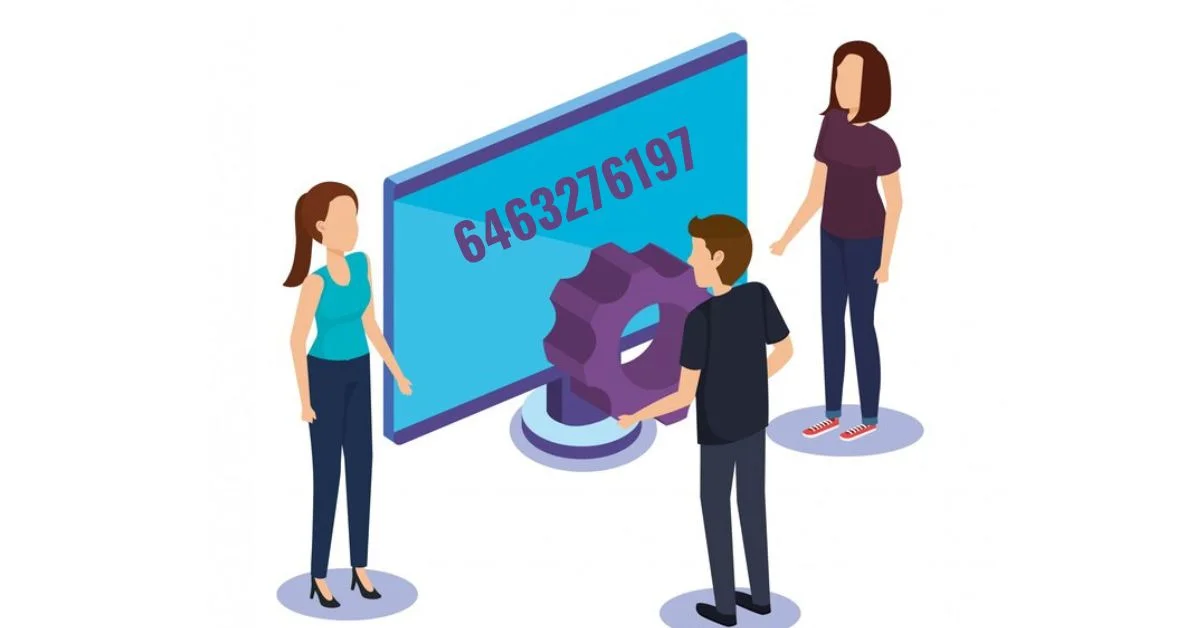We’ve all encountered seemingly random sequences of numbers in our daily lives. Maybe it’s a phone number like 6463276197, a combination lock code, or even a series of digits displayed on a digital clock. But have you ever stopped to consider what such a random sequence might mean in the age of artificial intelligence (AI) and machine learning (ML)?
This article delves into the concept of randomness, explores how ML algorithms generate random numbers, and ponders the possibility of hidden meaning behind seemingly random sequences like 6463276197.
What is Randomness?
Randomness, in its simplest form, refers to the absence of any pattern or predictability. It’s the idea that something occurs by chance, without any predetermined order or cause.
In the world of mathematics and statistics, randomness is a more nuanced concept. It’s often described using terms like probability and uncertainty. For instance, flipping a fair coin results in either heads or tails with equal probability (50%). This is considered a random event.
How Do Computers Generate Random Numbers?
While true randomness might exist in nature (like radioactive decay), computers are deterministic machines. This means they follow a set of instructions and produce predictable outputs based on those instructions. So, how do computers generate random numbers?
Here’s the catch: computers don’t truly generate random numbers. Instead, they use algorithms to create seemingly random sequences. These algorithms rely on complex mathematical formulas that produce unpredictable outputs based on a seed value (a starting point). Even small changes in the seed value can drastically alter the resulting sequence. Four Digits to Memorize NYT
There are two main types of randomness used in computing:
- Pseudo-randomness: This is the most common type of randomness used in computers. Pseudo-random number generators (PRNGs) are algorithms that produce long sequences of numbers that appear random but are actually deterministic. These sequences can be recreated if the seed value is known.
- Cryptographic randomness: This type of randomness is crucial for cryptography and security applications. Cryptographic random number generators (CSPRNGs) are designed to be unpredictable and difficult to guess, even if the seed value is known.
Machine Learning and Randomness
Machine learning algorithms rely heavily on randomness for various purposes:
- Training data selection: When training an ML model, a random subset of data is often selected from a larger dataset. This helps prevent the model from overfitting to the specific training data and improves its ability to generalize to unseen data.
- Initialization: Some ML algorithms require initializing certain parameters (weights and biases) with random values. This helps the algorithm escape local minima and find better solutions during the training process.
- Regularization: Randomness can be introduced during training to prevent the model from becoming too complex and overfitting to the training data. This is achieved through techniques like dropout, where a random subset of neurons in the neural network are dropped during training.
Is There a Message Hidden in 6463276197?
It’s highly unlikely that there’s any hidden message or secret code embedded within the number 6463276197. As discussed earlier, computer-generated random sequences are just that – random. They are not designed to convey any specific meaning.
However, there are a few possibilities to consider:
- Coincidence: It’s simply a random sequence you happen to encounter.
- Algorithmic bias: The randomness might be influenced by the specific algorithm used to generate the sequence. For instance, some PRNGs might exhibit certain statistical biases.
- Human perception: We, as humans, tend to find patterns even in random data. This is known as apophenia. The sequence 6463276197 might appear significant to you simply because your brain is trying to make sense of it.
FAQs on Randomness and Machine Learning
Q: Can’t quantum computers generate truly random numbers?
A: Yes, quantum computers have the potential to generate true random numbers by harnessing the inherent randomness of quantum mechanics. However, quantum computing is still in its early stages of development.
Q: How can I be sure a random number generated by my computer is truly random?
A: For most everyday purposes, pseudo-randomness is sufficient. However, if you need cryptographically secure random numbers, you should use a CSPRNG or a hardware random number generator.
Q: Does randomness play a role in artificial general intelligence (AGI)?
A: This is an ongoing area of research. Some experts believe that randomness might be essential for achieving true intelligence, allowing an AGI to explore and adapt to new situations.
Conclusion
The concept of randomness takes on a new layer of complexity in the age of AI and ML. While computers can’t generate true randomness, the sophisticated algorithms they use produce sequences that appear random to us. These seemingly random numbers play a vital role in training ML models and fostering exploration and adaptation.
The next time you encounter a random sequence like 6463276197, remember that it’s likely just the result of a complex algorithm. But it also serves as a reminder of the ongoing interplay between chance and design in the world of machine learning. As AI continues to evolve, the role of randomness in its development will be an intriguing area to explore.


[…] improbable that there’s a secret message or mystery code installed inside the number 6463276197. As examined before, PC-created irregular arrangements are only that – arbitrary. They are not […]